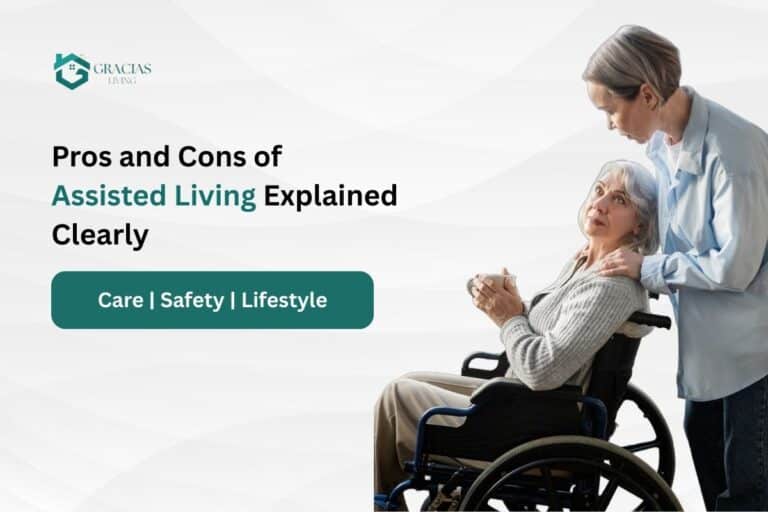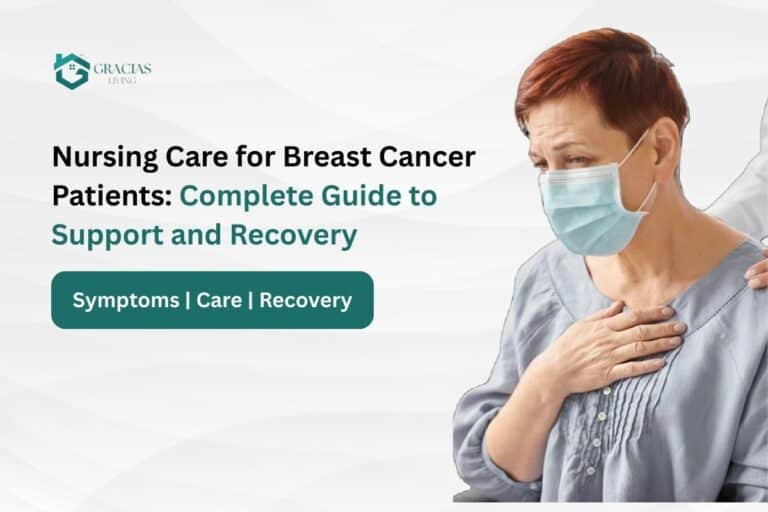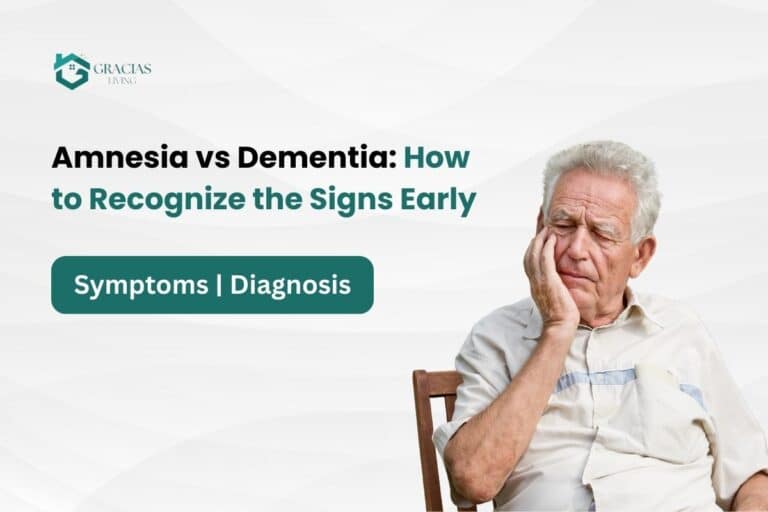Quick Summary of the article:
- Assisted living becomes essential when seniors show signs like memory decline, frequent falls, or trouble with daily tasks.
- It work best when started early, involving seniors in choices to ease anxiety and build trust.
- Assisted living options vary, so before moving, explore facilities based on care levels, amenities, and emotional fit.
- Adjusting to assisted living takes time, so support your loved one in building new routines and participating in community life.
- Benefits of assisted living include 24/7 care, social engagement, reduced isolation, and a secure, maintenance-free lifestyle.
Assisted living offers seniors support with daily tasks while maintaining their independence. If your loved one struggles with mobility, memory, or self-care, it may be time to consider a move.
Choosing the right facility requires research, visits, and understanding their needs. But when is the right time to move? How do you choose a facility and convince your parents? And how long does it take to adjust?
Assisted living discussions with parents can be sensitive. It is often filled with a mix of emotions, difficult decisions, and a deep desire to ensure the comfort and well-being of oneself or loved ones.
Convincing parents can be challenging, but open conversations and trial stays help. Once they move in, familiar routines, social engagement, and family visits speed up adjustment.
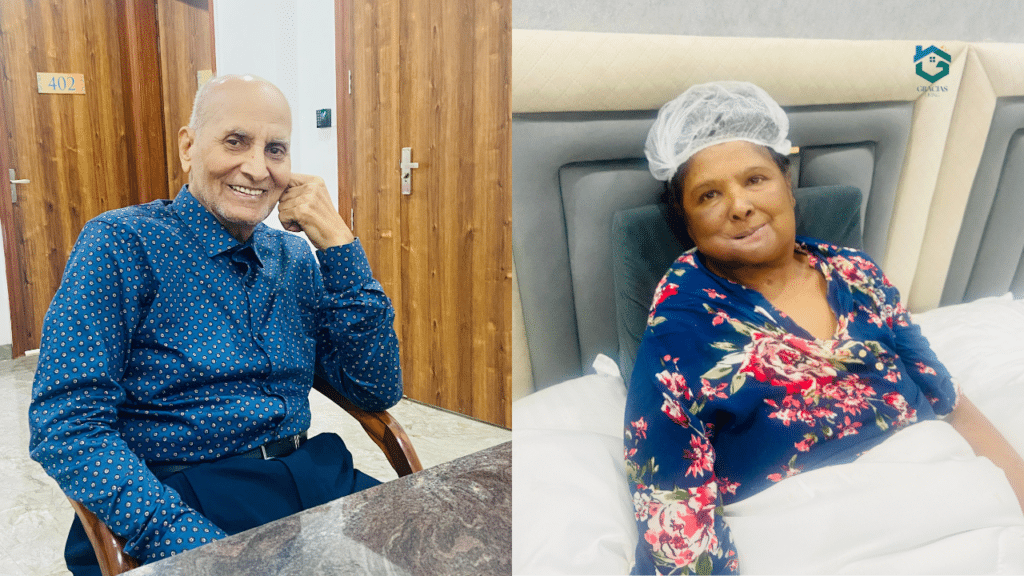
Assisted Living vs. Other Senior Care
Assisted Living provides assisted living and autonomy that is crucial, and it provides some assistance to aid the activities of daily living (ADLs) like bathing, dressing and med administration.
It is ideal when dealing with the aged, who need routine and non-medical attention without 24-hour skilled medical care. The goal is to offer the optimum quality of life and autonomy of the resident under a community set-up.
Memory Care is a special type of care and is normally provided in the Assisted Living or nursing home type, and is also mostly targeted at people with Alzheimer’s or other forms of dementia. These units will offer supplements in terms of security, specialised workforce training and cognitive deterioration-based initiatives.
Instead, Nursing Homes are offered to people requiring intense and 24-hour nursing care of authorised nurses and physicians. Independent Living are the active members of the seniors who do not need a lot of or no help in their daily lives yet only amenities and a common living.
Moving to Assisted Living: When is the right time
The question always arises: When is the right time to shift into an assisted living facility? No one answer fits all, but several indicators suggest it might be time to consider assisted living. These include:
- Declining Health – If you or your loved ones are having difficulty conducting daily activities, like bathing, dressing, mobility, and eating.
- Safety Concerns- As people age, frequent falls or difficulty getting around the house pose a significant safety risk.
- Cognitive Decline – Conditions like Dementia and Parkinson’s need specialized care provided in an assisted living facility.
- Social Isolation – Loneliness can negatively impact mental and physical health, which can further be a cause of declining health.
- Increased care needs – When the family caregiver can no longer adequately meet the growing needs of their loved ones.
These changes, these subtle hints, are the indicators. It’s a topic and decision best viewed with open hearts and honest conversations, involving loved ones, family, and healthcare professionals. It’s about recognizing that seeking support is a sign of strength, not weakness.
“But what if they refuse?” This is the heart-wrenching question that often follows. How do we guide someone we love towards a decision they resist?
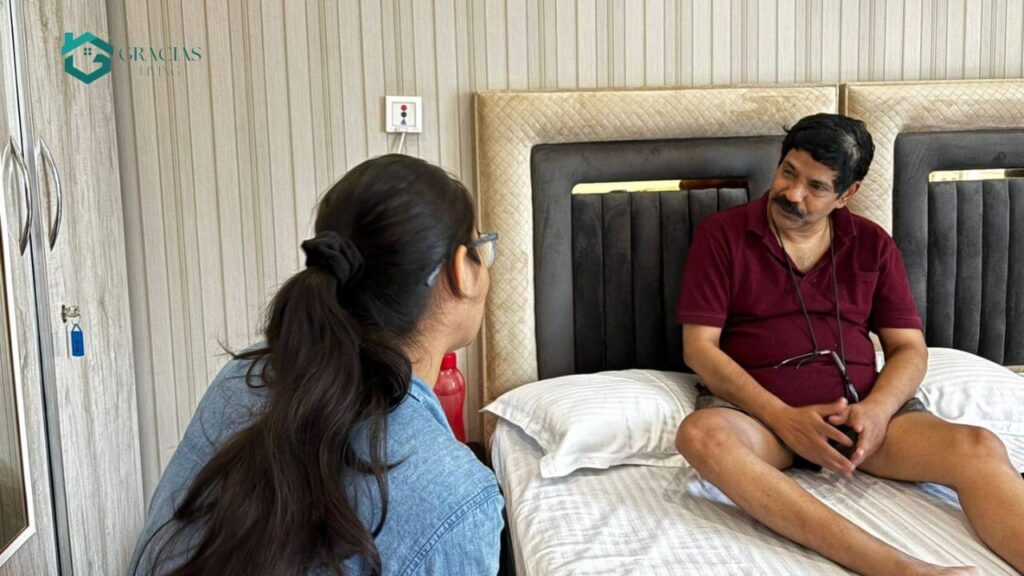
Here are some strategies:
- Start the conversation early: Begin discussing assisted living facilities with your loved ones before it is urgently needed.
- Highlight the benefits: It’s natural for seniors to focus on what they are leaving behind. Shift the focus to what they will gain: “You’ll be in a community where you can make new friends and enjoy social activities.” “You won’t have to worry about household chores, cooking, or maintenance anymore.” “Medical support will be available 24/7 in case you ever need it.” Pointing out these benefits can help them see the positive side of the transition.
- Address their fears and concerns: Listen carefully to their worries and provide thoughtful responses. Assure them that their concerns are valid but that they won’t be facing this transition alone.
- Involve them in decision making: Arrange visits to several assisted living facilities. Let your loved ones experience the environment and give their input on where they feel they will be comfortable/
- Trial Period: A lot of facilities offer trial stays, which can help you or your loved ones get the feeling of the facility and make a decision for the transition.
How do we get into Assisted Living
Getting into assisted living involves clear, proactive steps.
First, assess the individual’s medical, emotional, and social needs. Next, research facilities that match those needs, schedule tours, and gather insights from current residents and staff. The process typically involves these steps:
- Evaluate Needs: Establish the appropriate extent of care.
- Evaluate Facilities: Look into assisted living facilities in your neighborhood, taking into account elements like amenities, cost, and location.
- Plan Visits: Take a tour of possible facilities to meet the staff and assess the atmosphere.
- Planning your finances: Recognize the expenses and look into ways to pay, such as private employment, long-term care insurance, or veterans’ benefits.
- Medical Assessment: To ascertain eligibility and care requirements, the majority of facilities demand a medical evaluation.
- Formalities: Send in the required documents and paperwork.
- Coordination of Move-In: Work with the facility to plan the move and ensure a smooth transition.
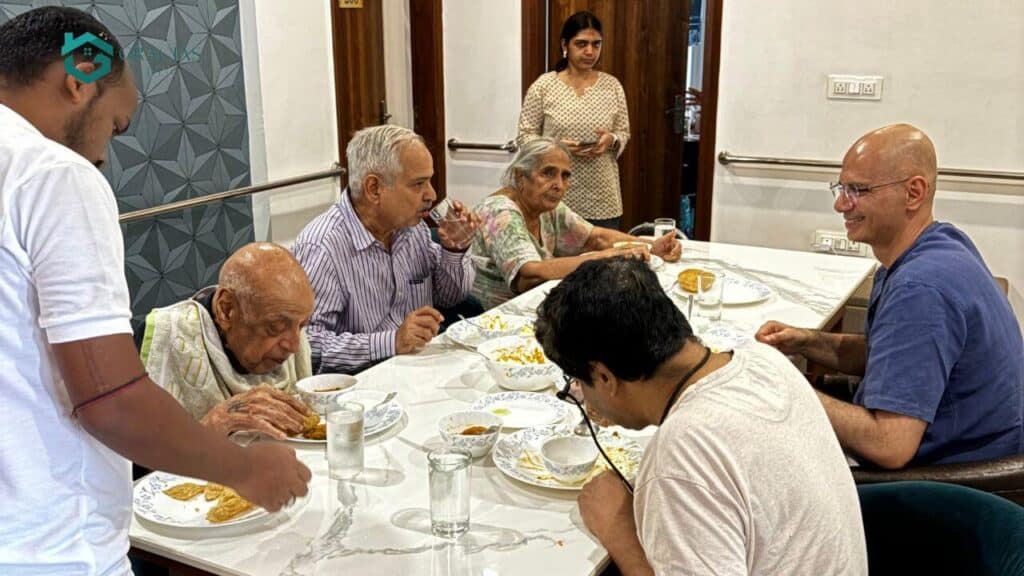
Being familiar with the assisted living prices
Assisted living is very expensive due to the geographical and physical location, facility content, and care nature that needed. The services tend to cover the price of apartments, healthy food, utilities and fun activities as well as the degree of personal individual care.
The raised costs are usually associated with the alternative of the private room, the communities rich in luxury and a high degree of mobility or a necessity to follow some complex courses of medications.
The funds are frequently the savings of the individual, the insurance of long-term care, and in certain cases, one may speak about the veteran benefits or state programs.
There is a pricing arrangement to be established in the facility, and there will be additional charges on incremental services, since the degree of care required may change over the course of time, which will translate to the ultimate bill being paid at the end of the month.
The process of selecting the Best Assisted Living Community
When considering the need to select the right facility, a consideration on the physical limitations is necessary, as well as the medical, social and emotional needs of the senior.
Research on different facilities of the region in the location desired and put special emphasis on staff-to-resident ratio, the level of safety, the quality and nature of social activity offered.
Make personal visits and sell your program to the current residents and their families so that you can know what is going on in the community. Make sure that the facility can also accommodate any of the expected health changes.
Finally, examination of all the legal documents, monetarily related agreements, and in the event there is such a possibility, a preliminary trial stay in order to ensure that it would work in its long-term basis.
The New Beginnings: How long will it take to settle in?
The response is quite personal and depends on person to person. Some adjust rapidly in their new ecosystem. Others take longer, requiring constant care and gentle reassurance.
It’s a period of adaptation, and It could take a few weeks. The most important things are tolerance, compassion, and steadfast support. Factors influencing this include:
- Personality- Some individuals adapt quickly, while some may take longer.
- Health and cognitive functions- Some individuals who are experiencing a cognitive decline might take longer to adjust.
- Support system- A strong family support helps the individual make a smooth transition and is easily adaptable.
- Facility Environment- A welcoming and supportive environment can facilitate quicker adjustment.
Final Thoughts
Choosing assisted living is an act of love. It’s not abandonment or leaving them. It’s about giving our loved ones the quality of life they deserve. In the end, what truly matters is their happiness, security, and sense of belonging.
Guide loved ones with patience, honesty, and involvement. Start early, address concerns, and highlight the benefits.
A smooth transition requires planning, support, and empathy. With the right approach, assisted living becomes not just a change, but a step toward a safer, more fulfilling life.
Frequently Asked Questions (FAQ)
1. How is the adjustment of the aged to the assisted living life?
Change is highly personalised and can take a few weeks or even months. The support system of the family, its participation in the community activity, and adherence to the accustomed practice are essential to the process of assisting residents in locating themselves in the novel ecosystem, as well as Binder to feel a sense of belonging.
2. How shall it be sufficiently inspired to go?
The first stage that should be introduced is the discussion of the first stage, with the focus on the benefits, these being the safety and social interaction.
Involve the elderly in the process of selecting the chosen facility and packing their personal things. The room can also be cluttered, and the room design can also be planned to eliminate transition anxiety.
3. What would the difference be between assisted living and a nursing home?
Assisted living offers non-medical attention in the daily living process and a socialising environment, and this fosters the element of independence. A nursing home provides 24/7 multi-faceted care, monitoring, and intricate clinical maintenance of severe chronic conditions/ rehabilitation needs.
4. What is the mode of trying to talk to my parents regarding visiting an assisted living facility?
Show patience, forbearance to the subject. Make the move appear to be a form of enhancing and rewarding life, rather than independence loss. List Teenagers Be involved in all the decisions, listen to their concerns and fears.
5. What will happen if my parent changes her health requirement once I move in?
Most of the assisted-living homes conduct regular health assessment tests. In case the needs become bigger (e.g. the need to have more mobility support), the care plan and costs will be increased to a more advanced level of service. Should the needs turn out to be clinical, they may imply that an individual needs to be transferred to a nursing home.



